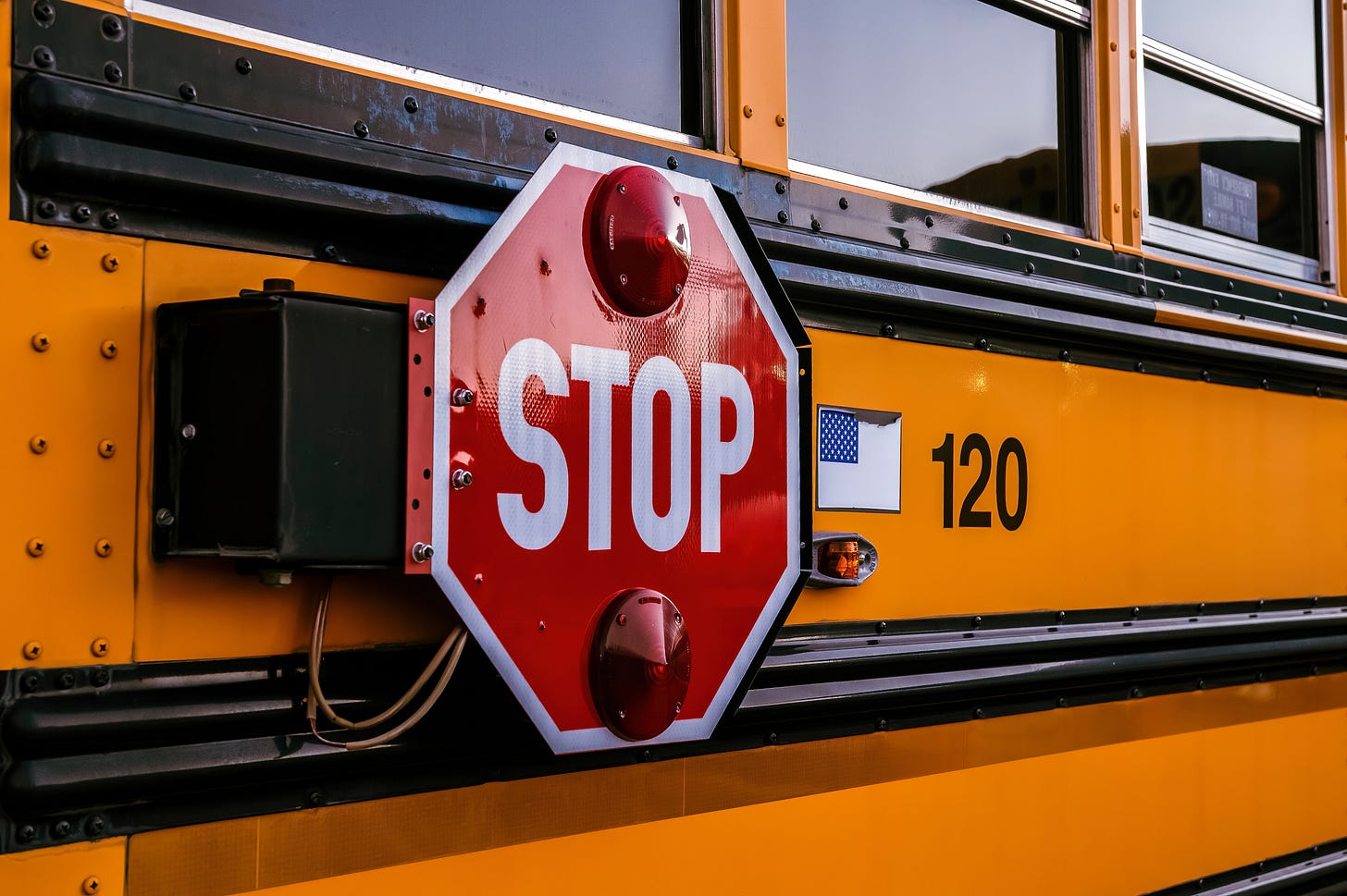Who counts as a frontline worker?
A bill providing payments for frontline workers passed in the House largely on party lines, and its future is questionable against strong GOP opposition.
It continues to be a busy, heavy, and daunting time on Planet Earth. Take a gander at some worker news and collective actions.
🚩 First, updates from LES 🚩
Labor studies and skills courses are back at the Labor Education Service! Learn more and sign up here.
By the way, the Labor Education Service is looking for an Administrative Associate. Know anyone who wants to work with an awesome team and help protect and educate workers? You’ll help the department with operations, logistics, events, finances, and communications. Check it out and apply here.
💸 MN House passes frontline worker pay…but the Senate has other ideas
Frontline and essential workers are put on pedestals and called heroes. We put signs up for them on our lawns and in our windows and we thank them in words. But we don’t always ensure their employers pay them or protect them.
A bill proposing frontline worker payments passed in the Minnesota House. It will need to pass in the Senate, too, but GOP lawmakers in the House were opposed to the payments, and the GOP-controlled Senate is proposing tax cuts instead. They want to use $3.5 billion of the surplus for permanent tax cuts for Minnesotans instead of providing direct cash payments to the workers most affected by the pandemic, the ones we’ve been calling heroes.
Because of the budget surplus, the Frontline Worker Pay Working Group’s original proposals for the $250 million set aside for frontline workers became $1 billion. This bill proposes payments of $1500 for 667,000 workers.
For a debate over frontline worker compensation, there was a lot of anti-worker sentiment and erasure of frontline workers experiences. GOP lawmakers stressed that the bill has no future in the Senate and that by introducing this bill DFL lawmakers were breaking their promise to get money to Minnesotans. They called it virtue signaling, but many of them took the opportunity to grandstand themselves.
They thanked workers for their sacrifices, then questioned whether or not they’ve “earned” payments. They expressed worry about burdening employers. I’ve also been noticing confusion regarding who and who doesn’t count as a frontline worker.

“You have good intentions perhaps…it’s not going anywhere in the Senate, and you wanted to paint with a broad brush, to the point where you’re giving someone who only worked three weeks $1500,” said Rep. Joe McDonald. “The Average Joe on the street does not think that they’re frontline workers.”
“Covid didn’t care if they worked one hour, or 20 seconds, or 20 minutes, there was no threshold for that,” said Rep. Cedrick Frazier, the author of the bill. “Many of these workers contracted the virus and were never able to go back to work. These workers are absolutely deserving.”
“Instead of building resiliency in people and encouraging people to get back to their normal life, they threw them on masks, pushed them in the basements, paid them to work remotely, Zoom everything in life, and throw out the pursuit of work that’s inherent in every person as they develop,” said Rep. Steve Drazkowski, who said the payments would be “grooming” the public for socialism. He also said children have a better chance of getting run over by a school bus instead of dying from covid. Not only is he wrong–not all workers could work through Zoom (that’s what this bill is about) and on average there are six fatalities of school bus passengers a year (hundreds of children under 18 have died from covid)–this is a callous and ignorant thing to say mere weeks after a school bus shooting in Minneapolis. School bus drivers are frontline workers who have been suffering tiring and dangerous working conditions during the pandemic.

Also, would there even be a surplus without the workers who kept the economy running?
The bill includes this list of workers:
“Frontline sector defined. "Frontline sector" means the following sectors:
(1) long-term care and home care;
(2) health care, excluding physicians;
(3) emergency responders;
(4) public health, social service, and regulatory service;
(5) courts and corrections;
(6) child care;
(7) public schools, including charter schools, state schools, and higher education;
(8) food service, including production, processing, preparation, sale, and delivery;
(9) retail, including sales, fulfillment, distribution, and delivery;
(10) temporary shelters and hotels;
(11) building services, including maintenance, janitorial, and security;
(12) public transit;
(13) ground and air transportation services;
(14) manufacturing; and
(15) vocational rehabilitation.”
Note: An amendment was added to include physicians. An amendment proposed by Rep. Peggy Scott requiring the names of those who receive a payment to be public did not pass. Additionally, Rep. Erik Mortensen introduced an amendment outlawing vaccine mandates, saying it was related to frontline worker compensation by allowing workers to keep their jobs while being unvaccinated. However, vaccines aren’t even mentioned in the bill, so it was removed out of order.
Here’s another definition used by the Frontline Worker Pay Working Group, taken from the American Rescue Plan Act:
“Essential work means work that:
(1) Is not performed while teleworking from a residence; and (2) Involves:
(i) Regular in-person interactions with patients, the public, or coworkers of the individual that is performing the work;
or (ii) Regular physical handling of items that were handled by, or are to be handled by patients, the public, or coworkers of the individual that is performing the work.”
National context: According to the AP, around a third of US states have used funds to give bonuses to workers.
What are your thoughts on these definitions? Are you a frontline or essential worker? What has working in the pandemic been like for you?
⌛🍎 Twin Cities teachers prepare to strike
Members of MFT Local 59, its ESP chapter, and SPFE Local 28 officially filed their intent to strike. They must wait 10 days before going on strike March 8, which has been years in the making due to poverty wages. A strike can be avoided if a contract agreement is reached.
Minneapolis Public Schools Superintendent Ed Graff responded to the strike vote in a video, saying they will be “working day and night” to avoid a strike.
🌟🧃 Will MPS food service workers join teachers in strike?
Members of SEIU Local 284, food service workers with MPS who’ve been negotiating for a contract, announced this week they’ll be voting to authorize a strike on March 2. The contract covers 200 workers.
“To be underpaid is a form of disrespect,” said Tiffany Bracey, a mother of five who has worked in food service at MPS for six years. In 2021, Bracey experienced the loss of her father, her husband, and two grandsons. “We’re out here struggling to feed our children,” said Bracey. “I just wanna be able to have a job to be able to support my family. If this happened to you or your family, would you be okay with it?”
🌟⚖️ Public defenders, too?!
Members of Teamsters Local 320 are preparing to vote to authorize a strike as well over wages and working conditions.
Check out public defender Darcy Sherman’s thread:
🌈 🩺 Rainbow health workers file for union election
Workers at Rainbow Health, an AIDS Service Organization in Minnesota, announced they’ll be forming a union and joining SEIU Healthcare Minnesota after their CEO and board refused to recognize them voluntarily. Demands include more safety, transparency, equity, and respect.
“When I started working here, first as an intern over 6 years ago, I quickly realized that each of our staff members are leaders,” said Naomi Kyndberg, who has worked as a Care Linkage Specialist for six years, in a press release. “What I have also seen is our actual leaders actively making it more difficult for us to do the work by making decisions that harm our communities, especially our BIPOC communities. I am fighting for our union so our leaders that work with the communities that we serve have a say in the work that we do.”
💥 🎧 Listen: Former Minneapolis police officers Tou Thao, J. Alexander Kueng, and Thomas Lane, were found guilty of violating George Floyd’s civil rights. MPR’s Jon Collins who’s been covering the trial speaks on NPR’s All Things Considered. Their state trial will begin in June. Derek Chauvin pled guilty in his federal trial in December.
Rise up together! We are each other’s harvest.





